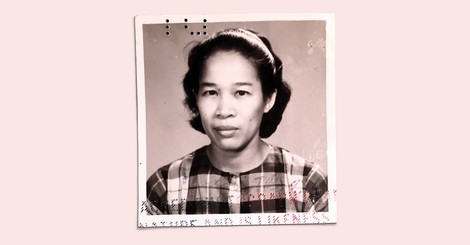Your podcast discovery platform
Curious minds select the most fascinating podcasts from around the world. Discover hand-piqd audio recommendations on your favorite topics.

piqer for: Global finds Technology and society
Prague-based media development worker from Poland with a journalistic background. Previously worked on digital issues in Brussels. Piqs about digital issues, digital rights, data protection, new trends in journalism and anything else that grabs my attention.
Lola: The Face Of Modern-Day Slavery
Pulitzer prize winning reporter Alex Tizon passed away in March 2017 at the age of 57. He died before The Atlantic's editors could tell him his story had been chosen for the June cover. The story they decided to run as the centerpiece described Eudocia Tomas Pulido, nicknamed Lola, a Filipino woman who was the Tizon family's slave for the majority of her 86 years of life.
The extremely captivating and moving long-read describes Tizon’s family history. The article is full of emotions and gives a passionate account of Lola’s decade-long servitude. The woman was a “gift” from Tizon's grandfather to Tizon's mother when she was young. When Tizon’s family moved to the US in 1964, she came with them.
"No other word but slave encompassed the life she lived. Her days began before everyone else woke and ended after we went to bed. She prepared three meals a day, cleaned the house, waited on my parents, and took care of my four siblings and me. My parents never paid her, and they scolded her constantly. She wasn’t kept in leg irons, but she might as well have been," reads the article.
Tizon’s article is actually a story of two women. Memories of Lola, a slave, intertwine with Tizon’s memories of her master, his mother. Usual labels may not be sufficient to capture the moral complexity, as he thoroughly describes his relationship with both Lola and his mother from his childhood until their deaths. What also surfaces is the struggle Tizon faced with his identity and complicity.
"We spent our first decade in the country learning the ways of the new land and trying to fit in. Having a slave did not fit. Having a slave gave me grave doubts about what kind of people we were, what kind of place we came from. Whether we deserved to be accepted. I was ashamed of it all, including my complicity," Tizon writes.
Overall, a truly powerful read on modern-day servitude that gives a face to 45 million people who still endure life as slaves across the world today.
Stay up to date – with a newsletter from your channel on Global finds.
